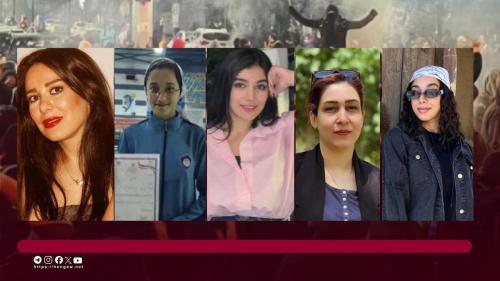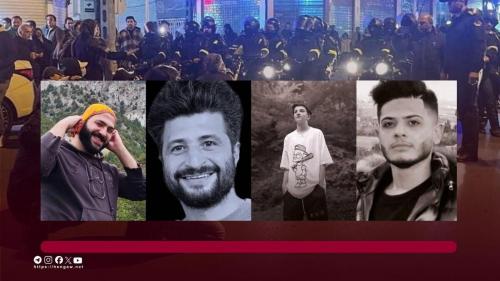02 January 2013 :
by Ernest Bai Koroma
President of the Republic of Sierra Leone
Over the past decades, Africa has been a theatre of fratricidal conflicts, which continue to this day. Conflicts in Uganda, Burundi, Rwanda, the Democratic Republic of Congo and many others – including my own beloved Sierra Leone – have wreaked havoc in the lives of millions of people, plunging them into a wake of death, destruction and despair. This phenomenon is not limited to Africa; brutal wars and massive political violence have plagued other countries from Afghanistan to the former Yugoslavia and, most recently, has swept the Middle East and North Africa. We cannot help but mourn the dead and feel for those left behind, even as we salute the promise of brighter days ahead.
While the root causes of these conflicts and violence vary from country to country, one common characteristic they all share is gross violations of human and political rights. Also, one common need for individual victims and for each country as a whole is justice; victims’ rights must be realised and those responsible for violations must be held accountable. Most of all, promises must be made and kept, that human rights will be safeguarded in the future, and that those who take the reins of power during and after times of transition are, and will continue to be committed to protecting human rights. This is the backbone that will allow peace and stability to be built and to be maintained.
In Sierra Leone, we spent a whole decade fighting a brutal war. Since that war ended in 2002, we have been faced with the daunting challenges of promoting peace, national recovery and development. While we, as a country, have been rising to those challenges, we have never for a moment allowed ourselves to forget that a strong foundation of human rights is essential to help us meet the challenges and keep Sierra Leone moving along the path towards a brighter and prosperous future for all her citizens. As I said on the occasion of the presentation of our 2011 Human Rights Report by Sierra Leone’s Human Rights Commission, “A culture of rights is taking hold, there are no political prisoners, no journalist has been incarcerated, no person has been executed under my government, and we are promoting the social rights of vulnerable women and children through the Free Health Care Initiative.”
Since the early 1990s, the death penalty has increasingly been recognised to be a human rights issue falling within the international legal framework and, more and more, being excluded from it. The UN Security Council unanimously decided not to include the death penalty among the sentencing options for the International Tribunals established to judge crimes committed in the former Yugoslavia and Rwanda. The UN Plenipotentiary Conference held in Rome in July 1998 approved the Statute of the International Criminal Court, which omitted the death penalty even for war crimes, crimes against humanity and genocide committed all over the world. Our own Special Court, established at the request of the Republic of Sierra Leone, also excludes the death penalty, which has led to serious discussions of this issue within our own national legal context.
More recently, in 2007, the 62nd United Nations General Assembly adopted a Resolution that calls upon all States that still maintain the death penalty to “Establish a moratorium on executions with a view to abolishing the death penalty.” With this resolution, the United Nations, for the first time, declared explicitly that the death penalty is a human rights issue and its phasing out represents serious progress for the world in this regard. In refuting amendments to the Resolution based on “internal sovereignty” and giving priority to human and individual rights, the United Nations forged a new path that builds on the legacy of international courts and tribunals in excluding the death penalty form their statute books. This resolution was a milestone in the almost twenty years of commitment by Hands Off Cain, the Nonviolent Radical Party and Emma Bonino, who championed the cause from 1993 onwards, as well as the efforts of the Radical Association “No Peace Without Justice”, to whom we are grateful for their work in Sierra Leone to help end impunity and restore the rule of law.
In adopting this resolution, the UN General Assembly did not, and cannot impose the moratorium on its member States. The Resolution, instead, has an extraordinary value in terms of principle and politics; it is a “guideline” for those who still practice the death penalty. The United Nations established for the first time that the question of the death penalty is one of individual rights and not of domestic justice and that its elimination represents fundamental progress for human rights in general.
In recent years, there have been significant steps taken by many countries to apply the guidelines in the United Nations General Assembly Resolution. Africa has the largest number of de facto abolitionist countries; some, such as Burundi and Rwanda have abolished the death penalty de jure, which has significant symbolic value given the torn and violent history of those countries. In general, there has been a growing trend toward legal abolition of executions and their general decrease in many countries, as well as a reduction of capital crimes or the commutation of death sentences.
In Sierra Leone, there have been no executions carried out for nearly 14 years; in 2008, our Constitutional Review Commission, recommended, among other issues, that the death penalty be abolished in all cases of treason or other crimes of a political nature that do not directly result in the death of another person(s) and be replaced by life imprisonment. On the occasion of our 50th anniversary of independence in 2011, as President of Sierra Leone, I decided to commute all death sentences to life imprisonment and pardon five death row prisoners. At that time, I hailed the country’s progress since the end of hostilities in 2002: we fought a war, but we have sustained a peace that is the envy of the world; we have suffered unelected leadership, but today we are the shining example of a country that is consolidating its democracy. Later the same year, the Sierra Leone delegation at the UN Human Rights Council accepted, in principle, recommendations to abolish the death penalty, accede to the Second Optional Protocol to the International Covenant on Civil and Political Rights and establish a de jure moratorium on the application of the death penalty aimed at its definitive abolition. These recommendations are now under consideration, subject to constitutional review.
Sierra Leone now has a moratorium, which is like a “truce”; in war, a truce acts as a passage to peace, negotiations and preparations for the end of fighting; a moratorium acts as the “truce” for the death penalty, a time politically, procedurally, legislatively and civilly to discuss, reflect and prepare. South Africa, for example, abolished the death penalty after five years of moratorium; indeed, almost all abolitions of the death penalty in the last ten years have come only after years of legal or de facto moratorium. Abolition will become a lasting reality when it can be integrated by democratic means into the hearts and minds of the public on one hand and into the constitutions and laws of States on the other. Nonetheless, the tide is turning in Sierra Leone, thanks to our strong commitment to human rights; our acceptance of the lack of a death penalty at the Special Court and our people’s acceptance of the sentences handed down by the Special Court for the most serious crimes we suffered throughout the decade-long conflict is testament to that.
We will continue to work on this and to work with our brothers and sisters in Africa and throughout the world to heal our conflicts, embrace democracy and launch a message of nonviolence and tolerance.








